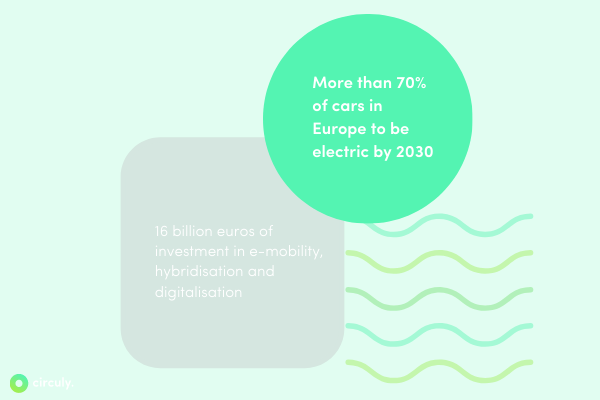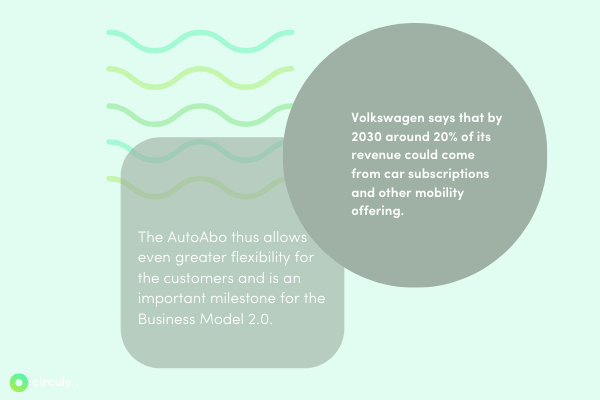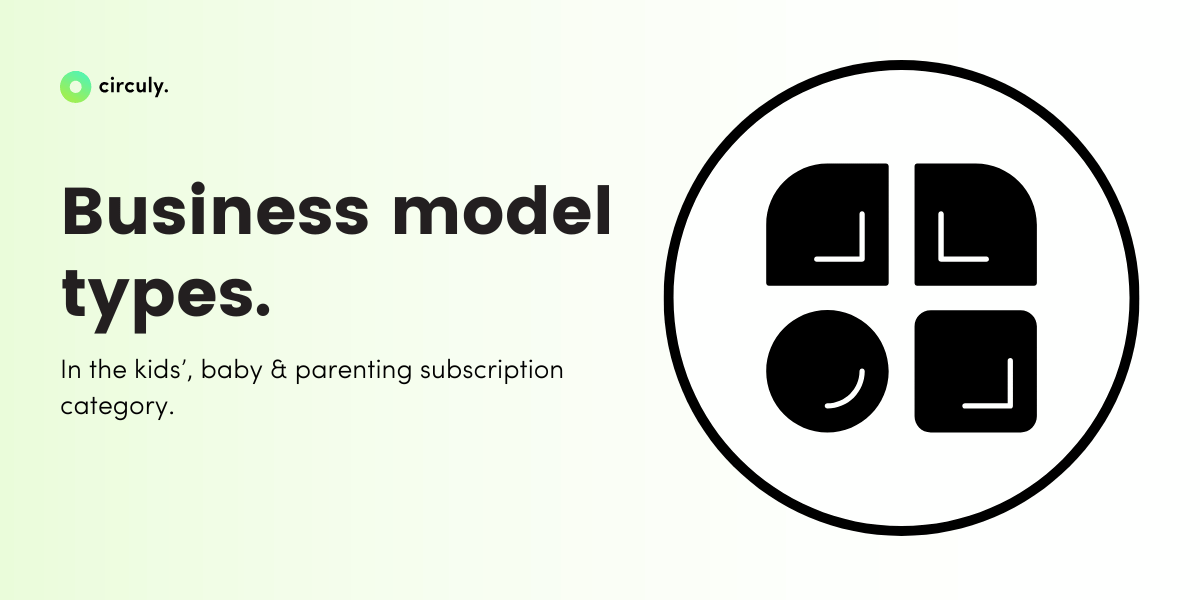Volkswagen: A name that doesn't need an introduction. Volkswagen is a German motor vehicle manufacturer founded in 1937.
You would expect Volkswagen to be your traditional car manufacturing company. But they have proved time and again that they are more than that.
Why would a traditional car manufacturer with a significant market share and an established brand tap into the world of subscriptions?
Business model 2.0: A push to sustainable mobility
Volkswagen wants to become the most sought after brand for sustainable mobility. They want to achieve this through a strategy that they call the ACCELERATE Strategy.

The transformation has four cornerstones:
- Electrification - Volkswagen says that by 2030 the percentage of cars sold in Europe with all-electric drive will rise to 70% and as a result, they want to launch at least 1 new electric model each year.
- Software-defined product - With half a million connected IDs. vehicles on the street, Volkswagen says that they will be able to translate direct customer feedback into improved and new functions.
- New business model - as part of their strategy, Volkswagen launched AutoAbo (auto subscription) in Germany for its ID.3 and ID.4 model.
- Autonomous driving - Volkswagen says that in 2026 automated driving with Level 2+ and possibly level 4 will be possible. This will allow for the continuous exchange of data and create a self-learning environment.
Revenue from car subscriptions to increase
Volkswagen says that by 2030 around 20% of its revenue could come from car subscriptions and other mobility offering. They realised that a rising majority of people do not want to own a vehicle permanently but would like to use one for a defined period. Their subscription offering offers even more flexibility to their customers.
Build a stronger online presence
They are making rapid progress in digitalising its sales activities and developing new business models. Volkswagen says that they are transforming into a tech company. They’ve also highlighted that Volkswagen wants to transition from a car manufacturer to a mobility-service-provider.

An introduction to electric vehicles
Subscriptions are a great way to try out new products because the financial commitment is low. Adoption of electric vehicles as a means of mobility is at a pinnacle stage and monthly subscriptions make it easier for customers to familiarise themselves with this transformation.
When customers are sceptical about trying out new products, subscriptions provide a way out and encourage product adoption due to low financial barriers.
%20(9).png)




%20(25).png)




.png)





